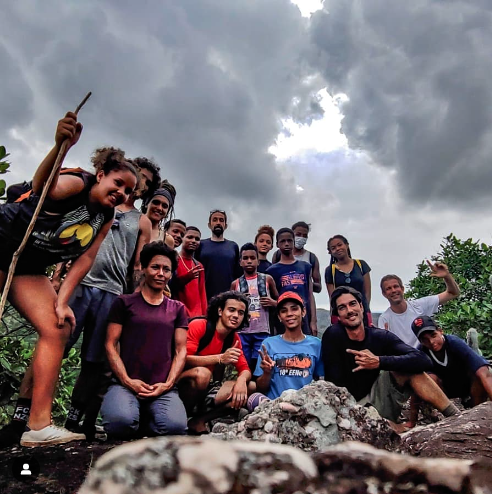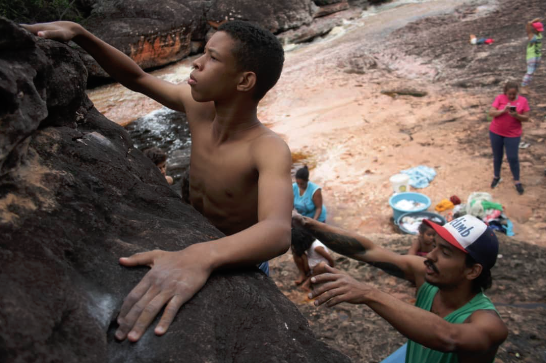Project Leaders making an impact with their programs.
Rafael “Rafa” Rebello
advocate for equality, Youth & environment
Photo/Foto: @huryahmadi
Scroll to the bottom of the page for Rafa’s full story.
Griot (Yoruba for Ambassador) at
NEGRITUDE Outdoor
Rafa’s Article on Melanin Basecamp:
Climbing Is Not a Meritocracy
“Climbing can be an elitist and exclusive sport. It took me at least two years, working hard, to save enough money to be able to have some lessons and to buy all the gear to get it started. This explains why the majority of athletes are white, male, mostly heterosexual, and affluent. Women, of all races, are also underrepresented – and it is not due to their lack of potential or competence.”
Learn about racism in Brazil:
”It’s All for Yesterday” - Available on Netflix
Discover Brazil’s climbing (Portuguese):
https://www.escaladas.com.br/
Chapada Diamantina National Park:
Coletivo
Escalada Lençóis
Youth climbing program in Lençóis, Bahia




one of CEL’s nearby crags:
Igatu boulder - buy the Guidebook PDF
Photo by Bruno Graciano
“How advocating became part of my life,
and how it reflected in my climbing.”
I come from a humble family of Rio de Janeiro. Since I was young, my mother, Marcia, used to do volunteer work - she would go to huge markets, and gather donations of food from all the tents, and donate them to a small ONG that worked with underprivileged kids close to our neighborhood.
From time to time, I joined her on those activities to help her out with the donations. The seed was probably planted on that day, by my mother, who is also a democratic activist and advocate for P.T. (Brazilian’s president Party - Lula ).
As an example, she would go along with my brother, Filipe, who is also an activist and read many books related to politics which at that time I had access to as well - and this combination influenced my political views.
Before climbing, I used to skateboard. I used to hang out at Rio’s punk rock / hardcore scene where I was exposed to more libertarian ideals, as well as a space where any sort of oppression - such as racism, homophobia, xenophobia and others - weren’t tolerated.
I was chased by skinhead neo-nazis, several times. I faced all sorts of prejudices at high school, just for being myself. I never really felt that I fitted in.
I kept studying, having the opportunity to access information and people in these spaces that taught me so much. There was a massive effort by my family and elders for me and my brother to access education, which of course became key in my development as a person, and this is probably the biggest contribution from them that I value most.
Then the seeds planted by my family were starting to sprout. When I had started climbing, I had never reflected that the social dynamics could interfere that much with rock climbing. I took to reading many books to stay informed, and aware; and I had time to live through and understand the effect of the social oppressions that exist in our society even in climbing.
The more I felt informed about it, the more I felt the need to help people that could potentially face the same struggles that I had had in climbing - such as racism.
I decided to take action working along with the collectives Negritude Outdoor and Coletivo Escalada Lençois. And here I am. Speaking out loud in the name of several brothers and sisters gone, or for those whose voices would never be heard…maybe, for now.
I never planned to become a climber that advocates against racism - or for inclusion and diversity outdoors. But all those things in my life brought me here, they are part of me. The whole climbing community needs this mindset change. We really need to make a community that is more inclusive and diverse for everyone.
We tend to see climbing as something sacred and idealized, a place to run away and evade from the problems in our society. But for some of us, that's not an option.
Sometimes those societal problems are right on our faces. Of course for those not affected by societal issues, it’s easier to avoid the issue. When unaffected, you can just look the other way, move on. “That’s life.” Right? But it shouldn’t be like this.
In the end, it's up to us - those who stand up to show these problems really exist, to identify and work on possible solutions.
Denying a problem’s existence won't change the reality.
Acting will."



